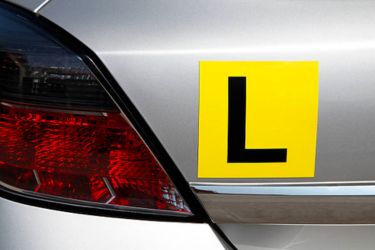Think back to the very first time you sat in the driver’s seat. Or when you were taking driving lessons. Maybe you went with a parent, an older sibling or even a friend. As good as their intentions might’ve been, it’s more than likely that driving with a personal relation caused some tension. The difference between learning to drive with an instructor and someone personally connected to you (who doesn’t teach driving for work) is that driving instructors have the pedals on their side (and nerves of steel).
However, external driving lessons can be expensive or intimidating for some learners. If you are going to be a passenger for a learner driver, it’s best not to launch yourself into the experience without some initial thinking. A bad first lesson can sometimes demotivate a learner driver. You must be supportive and patient as they navigate the roads and learn the rules. The following suggestions can help prepare both you and the prospective driver for as seamless a driving experience as possible:
- Don’t assume your driving skills are transferable:
Remember that the driver is still learning and may make mistakes. It’s important to be patient and not get frustrated with them. If you’ve been driving for a long time, it can be hard to remember what learning and being unsure feels like. Certain skills like performing a turn or reversing are second-nature to you, but for a learner-driver, it’s a completely different form of coordination. - Communicate clearly:
If the driver is doing something unsafe, it’s important to communicate clearly and calmly. Explain what you’re feeling and why, rather than just telling them they’re doing something wrong. Much of the stress that learner drivers feel can stem from passengers expressing criticism in a reactive rather than proactive manner. Try to frame yourself as any other teacher – you start your students on basic sums first, then build up to long division. And if they get the equations wrong, you explain how they can improve considerably. - Celebrate the small things:
If the driver is doing something well, let them know. Positive feedback is equally as important as constructive criticism. To be clear, you’re not trying to make the driver recklessly over-confident, but you are trying to mediate the experience of driving with fear – driving with extreme anxiety and avoidance can amplify stressful situations. - Be a good role model:
As a passenger, you should set a good example for the driver. Follow traffic laws, wear your seatbelt, and be respectful of other drivers on the road. Learner drivers are also more likely to pay attention than ever to what you’re doing behind the wheel, and they tend to pick up on your little driving habits. For example, I still use my dad’s parking method when I park my car because I was taught that way. - Help them prepare:
Before you go for a drive, help the driver plan the route and review any road signs or rules that may be unfamiliar to them. Consider where you take them driving; start local, and build up from there. What stressed me most when I was learning was not knowing the route because my passenger wasn’t telling me what streets to turn down in time. - Be encouraging:
Encourage the driver to take their time and remind them that it’s normal to feel nervous when learning to drive. Panicking or rushing is easy because the cars behind you are getting impatient. Reassure the learner driver that it’s a priority to be safe and drive cooperatively, but not to make decisions because of pressure from other vehicles. - Respect their space:
Remember that the driver is in charge of the vehicle, and respect their decisions. Every learner driver dreads that moment when their passenger reaches for the steering wheel. I think it’s a good idea to voice this before you start driving; even just saying, “I promise only to help you steer if you are nearing a hazard too quickly” can really help assuage any stress.
It’s important to remember that nobody is perfect, as a learner or a passenger. Don’t be too hard on yourself if things don’t always go as planned or you have inconsistent lessons where you’re more composed than others. The old saying ‘if you fall off the horse, get back on again’ could not be more relevant here. Leaving long periods between your driving practice can condense and heighten stress, so try to establish a consistent routine.


